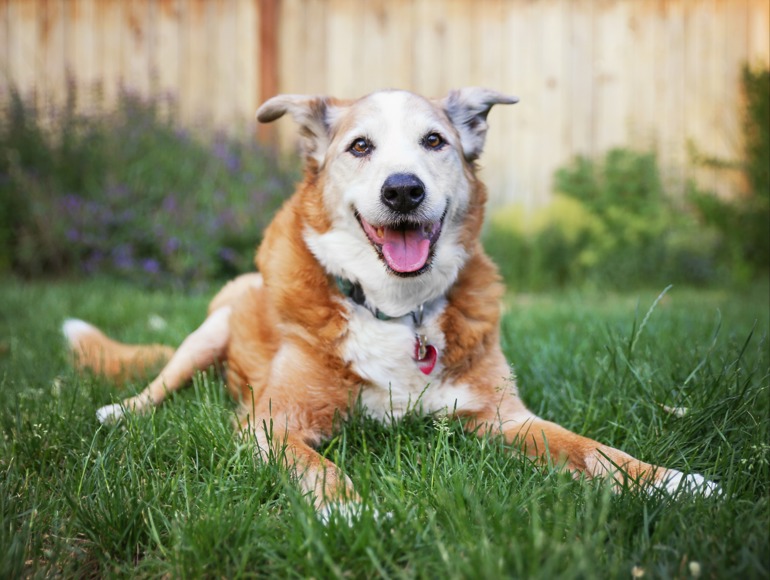How to make life golden for your senior dog

Who doesn’t love a senior dog with a sweet, gray face and so much love to give? As our beloved pets grow older, it’s important to consider their changing needs and desires for extra care and affection. Here are several tips to make your senior dog happier, healthier, and more comfortable in their golden years.
- Start (or continue) taking your dog to the veterinarian annually for wellness exams, urinalyses, and blood work. Seeing the veterinarian every year helps prevent and promptly treat a variety of health conditions. In fact, veterinarians may recommend exams as frequently as every six months as your pet grows older.
- Senior dogs are vulnerable to disease and may struggle to recover swiftly if they do become sick. Keeping your dog current on their vaccinations is essential to protecting them from illness and supporting their overall health.
- Throughout a dog’s entire life, but especially as they age, it’s important to maintain and improve their dental health by keeping their teeth and gums clean. Brush your pet’s teeth regularly and speak with your veterinarian about the need for dental cleanings and extractions if your pet seems uncomfortable or in pain. For more information on pet dental health, click here.
- We recommend grooming your senior dog frequently. As our pets age, their ability to groom themselves decreases, leading to problems like matting (which can hide tumors and skin conditions) and discomfort for our longer-coated friends. Likewise, if your dog is less active than they used to be, they may need their nails trimmed more often.
- Even as our dogs advance in age, it’s vital to keep them appropriately active to prevent conditions like arthritis and heart disease. Discuss any thoughts or concerns related to physical activity with your veterinarian. Medications to treat conditions, such as arthritis, are often recommended to improve their mobility and quality of life.
- In addition to medications, physical therapy can be a great option to improve mobility and joint health. You can further reduce impact on your pet’s joints by providing ramps, steps, carpets, and other forms of assistance to ease their mobility.
- Orthopedic beds can also help comfort pets with stiff and achy joints and muscles. Heated beds can help your pets feel cozy, as long as they are able to move away from the warmth whenever they choose.
- Make daily efforts to keep your dog’s mind sharp and engaged with mental enrichment activities, such as food puzzles or sniffy walks.
- Consider the amount and type of food you’re feeding your senior. Older pets who are overweight may be less energetic and prone to conditions such as arthritis, heart disease, and diabetes. Consult your veterinarian about any potential diet changes or recommendations.
- Ensure your pet has ample access to fresh water and monitor their consumption. If you notice an increase in water intake or urination, your pet may be experiencing diabetes and/or kidney and liver disease.
- If your older dog is still intact, they may still be able to receive a spay or neuter surgery to reduce the risks of disease and certain types of cancer. Consult with your veterinarian to discuss whether your pet is a suitable candidate for surgery.
- Keep your dog up to date on the latest fashion, and consider changing some of their worn collars, harnesses, and gear. It’s not uncommon for animals to develop skin irritation due to wearing the same apparel for years. Plus, overly loose or damaged collars may become a safety concern.
Although senior dogs often need extra care in their golden years, they still make loving companions and wonderful pets. By adjusting a few aspects of our dogs’ routines and keeping up with their health needs, we can help them live life to the fullest.
Every Tuesday, the League offers a “Seniors for Seniors Adoption Special,” in which fees are waived for people 65 years or older who adopt any pet 8 years or older.
Come to the Dumb Friends League and adopt a senior sweetheart today!



